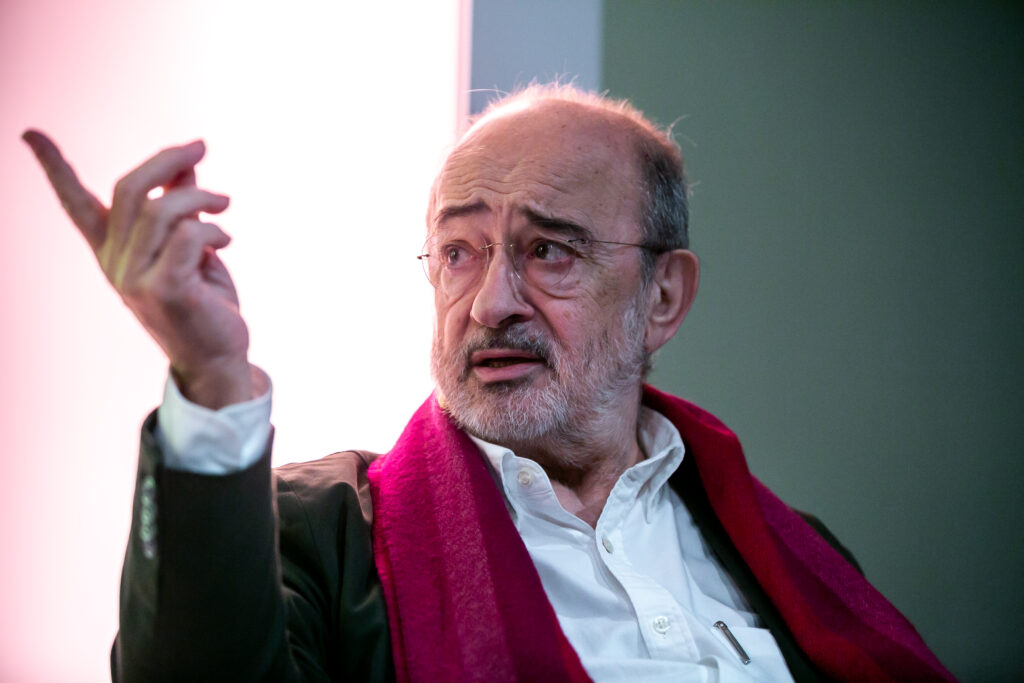“Artistic creation must be protected with a legal framework as a fundamental right”
“Artistic creation must be protected with a legal framework as a fundamental right,” insisted Jesús Prieto de Pedro at the presentation of the book ‘Libertad arte y cultura: reflexiones jurídicas sobre la libertad de creación artística’ last February 27 at Museu de l’Art Prohibit.
Organized with the Gabeiras Foundation for Law and Culture, the aim of the event, apart from presenting the book, was to discuss what is or should be the legal framework in which the artistic collective develops its activity or to define the guarantees and protections offered by law to cultural professionals from different disciplines.
The coordinators of the volume, Jesús Prieto de Pedro and Roger Dedeu, the artist Núria Güell and the art historian and cultural advisor Manuel Borja-Villel spoke on the subject. The debate was moderated by philosopher and writer Bernat Dedéu.

“How do you heal when you have taken something away from someone? How do you heal something you have censored? The wound does not heal, it is done. The only way to heal is to redistribute”, with these words Roger Dedeu Pastor spoke about the right of creation, the collective fact and the relationship between different cultures.
Manuel Borja-Villel demanded the right to cultural redistribution and in this sense insisted that what is at stake is to change the system. He recalled that there are many people who lack art and this should not mean that they do not have freedom of expression. Stretching this thread, Borja-Villel added that “the question of rights of creation must also be accompanied by rights of rejection, because there are things that may be legal but are not ethical

“Censorship is more porous” pointed out artist Núria Güell, author oIdeologías oscilatorias (a piece that can be visited on the terrace of the Museo del Arte Prohibido), who also asked if “censorship is made in work done or also to a grant not given?”. For Jesus Prieto the case is “the calls are followed intentionally… and that is a very serious matter”.
All the participants agreed in affirming that non-frontal censorship tactics and strategies are still very much in force, and Manuel Borja-Villel wanted to point out that: “Precarization creates resentment, and resentment fascism”.

